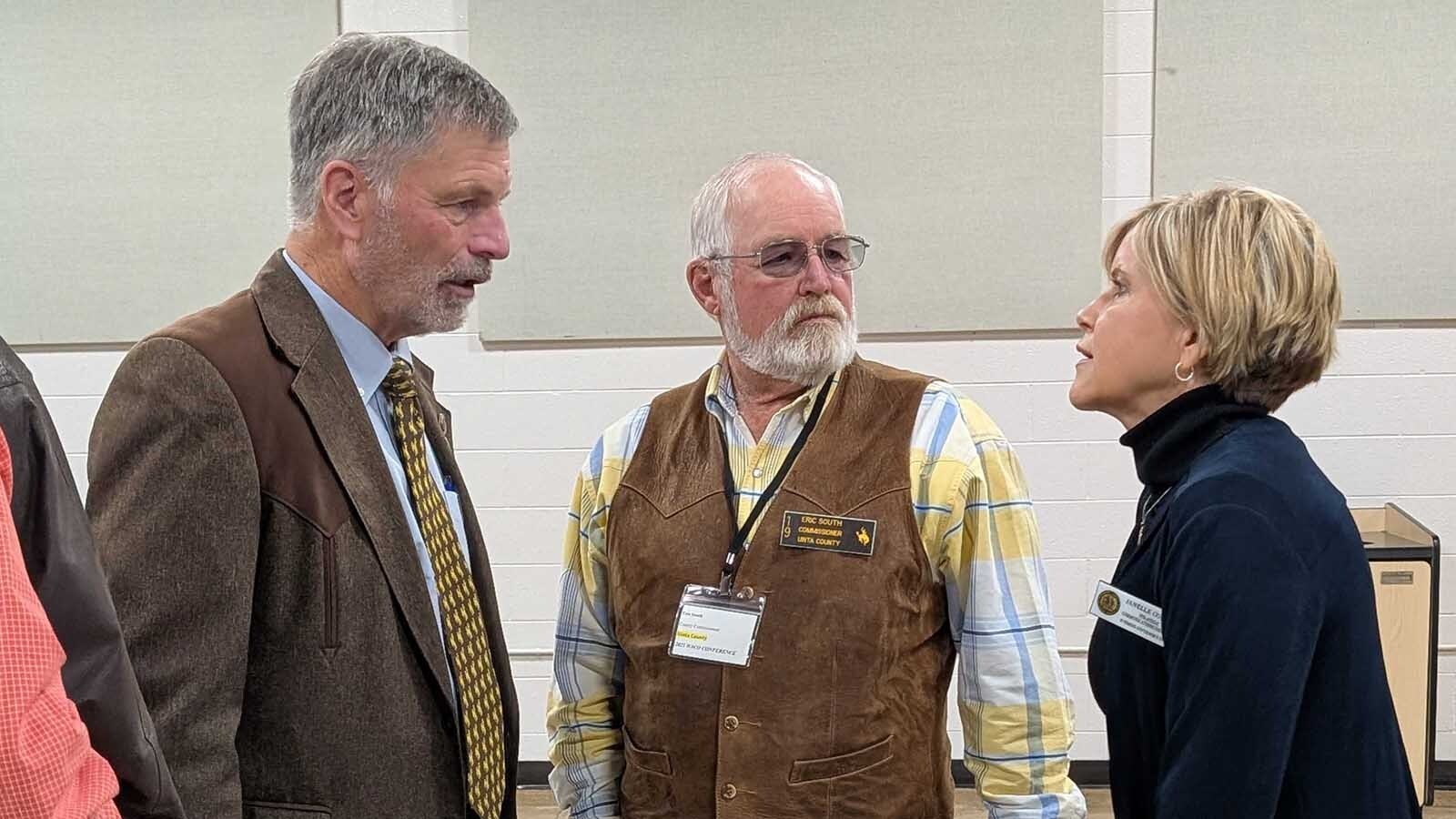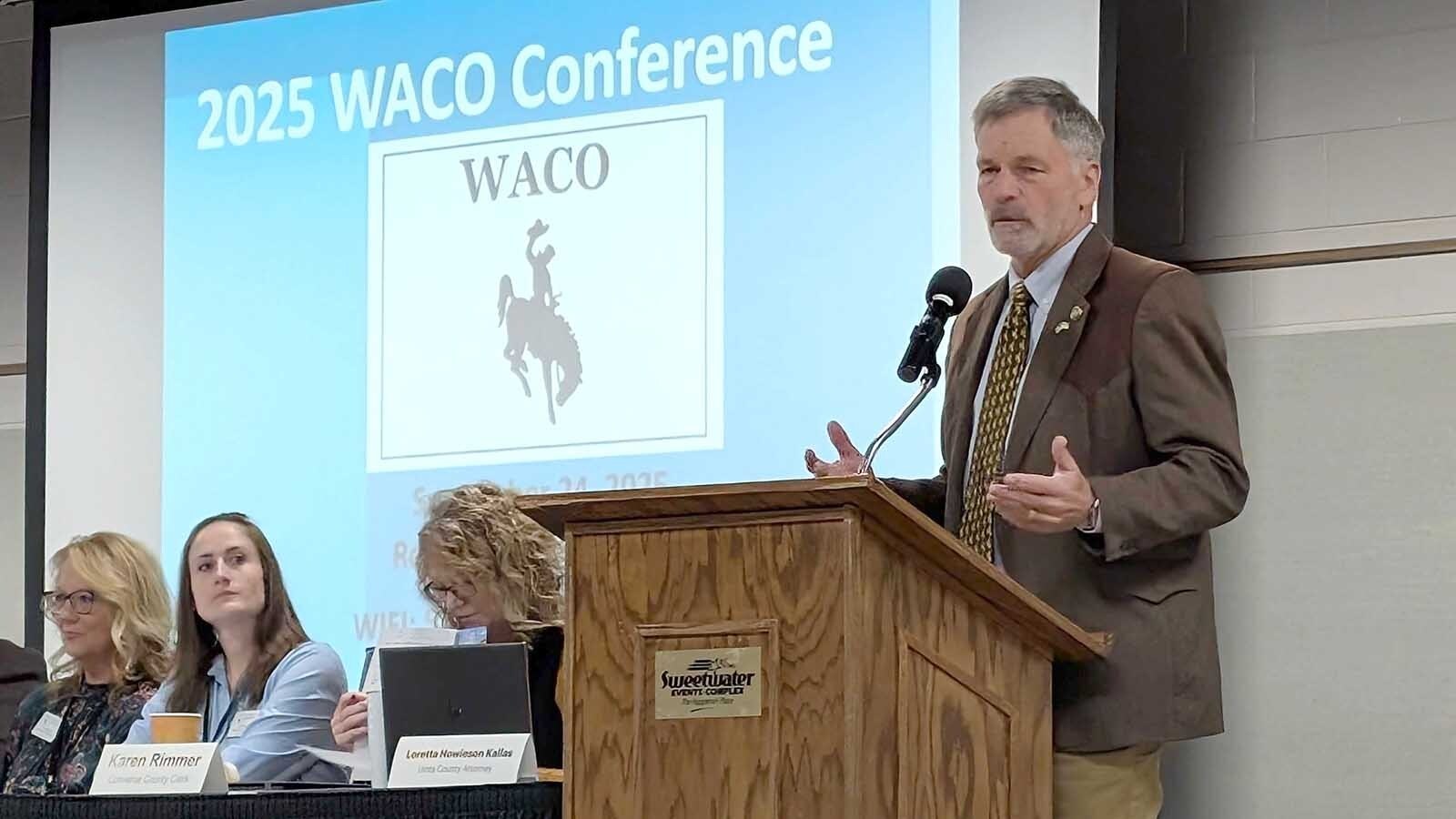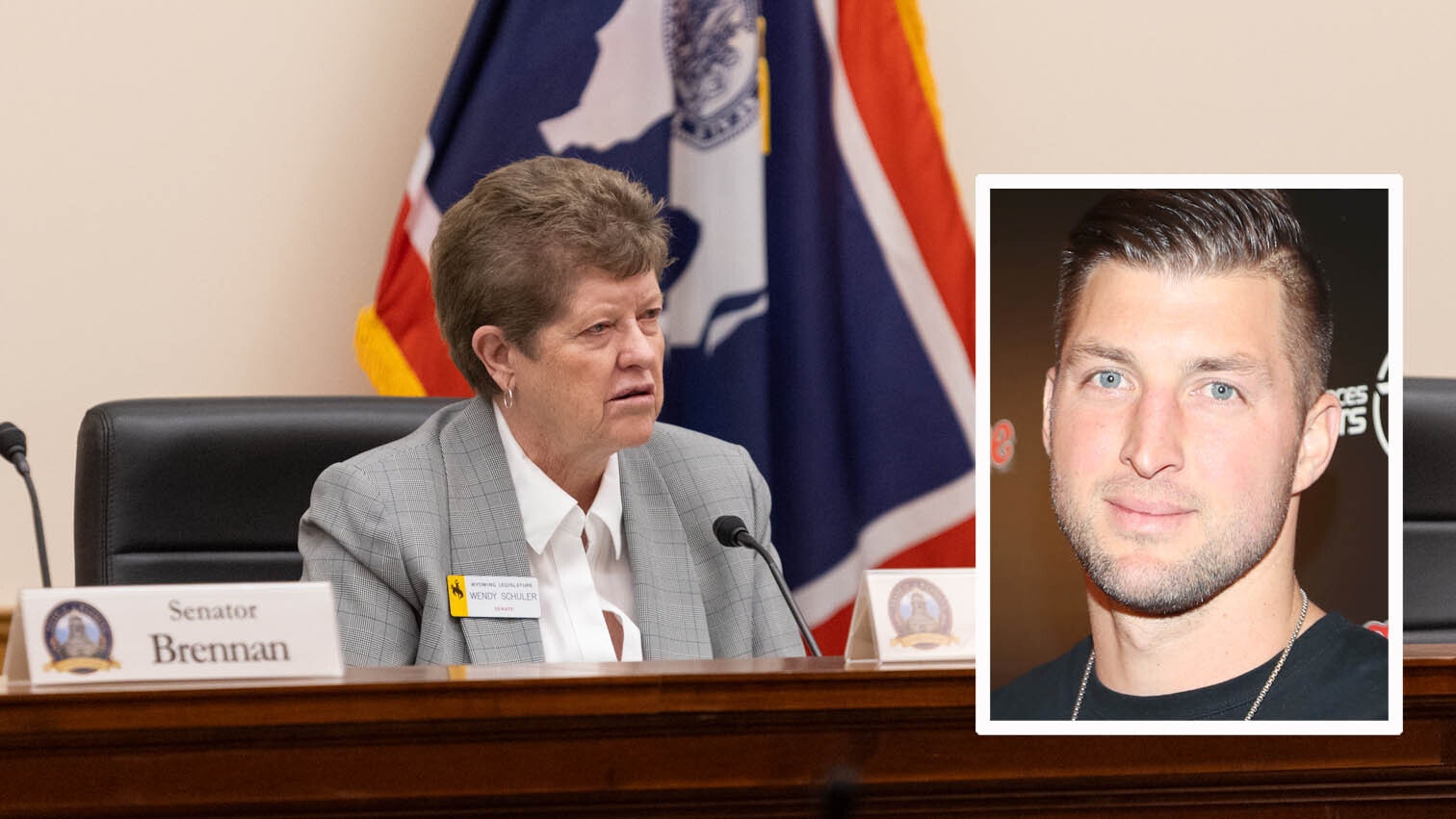ROCK SPRINGS — Gov. Mark Gordon on Wednesday said anticipated budget shortages precipitated by a 25% property tax cut are one of several critical issues county and local officials must confront during the coming budget session.
His remarks came while addressing the 2025 Wyoming Association of County Officers meeting in Rock Springs, a gathering of county officials from across the state.
The governor acknowledged having flown into town through a thick fog that morning, which he likened to the coming budget concerns facing Wyoming’s elected officials.
While Gordon in March signed Senate File 69, creating a permanent 25% property tax exemption for the first $1 million of the value of a single-family home, he agreed the coming budget session will prove challenging for local and county leaders to make up the difference.
Seventy percent of property taxes fund public schools and the rest fund local governments, representing a major source of revenue for local government services.
Wyoming, Gordon said, must soon take “a very stern look at our finances.”
The governor added the legislature this coming session will be filled with many new legislators. While these individuals may bring a fresh perspective to the budget conversation, he also indicated their lack of familiarity with the state’s budget may prove to be difficult.
Despite this, Gordon likened the commissioners to horses who know their way through the fog, even when their riders do not.

‘I Just Worry’
When Gordon signed SF 69, he indicated that he had done so to provide relief to tax-weary Wyomingites. He also signaled that local governments would be charged with making up the difference.
“I have always supported tax accountability, and this bill provides tax relief without transferring the burden to our core energy industry,” Gordon said in a statement at the time. “This act, coupled with the bills I signed last year, responds to the call for property tax relief.
"Now the practical impacts of this legislation will need to be navigated by our cities, counties, special districts and citizens.”
In a conversation with Cowboy State Daily Wednesday, Gordon reemphasized that point, saying these cuts provide much needed assistance to homeowners.
“The theory here is we want to give property tax relief, and taxes are something nobody wants to pay unless it’s absolutely essential,” he said. “Your legislature then can make decisions about what gets paid for and what doesn’t, which is the legislature’s prerogative, not necessarily your county commissions.”
He admitted, however, this is a tall order for state and local officials to navigate and that he is concerned about the potential impacts it may pose upon future growth.
“I just worry that that kind of removes that ability to say ‘we need a new addition on our hospital’ and having the voters come together and say ‘I agree,’” he added.
Gordon also acknowledged the Freedom Caucus — generally considered the most conservative bloc of legislators — and other supporters who are rallying for additional tax cuts as high as 50%. This, he said, is an important conversation to have so long as it does not interrupt essential services.
“I think the Freedom Caucus, they have an agenda, and it’s good to have the conversation,” Gordon said. “It is always important to look at how we can make government leaner, but it’s also important to make sure that we have government that does the essential things that it is supposed to do.”
Many essential services will be butting heads with one another this session to secure proper funding.
Rep. John Bear, chairman of the Joint Appropriations Committee, told Cowboy State Daily earlier this month that food stamps is just one of several programs that rely on his committee for funding.
Another major concern, he said, is the state Department of Health, which could potentially see cuts to Medicaid and Medicare.
“In a multibillion-dollar biennial budget, $3 million is not that much, but $3 million here and $3 million there adds up, and we have a lot of programs that we’re looking at and all of them are important,” he said. “The question is which ones are more important than others?”
Commissioner Concerns
Wyoming County Commissioners Association's Executive Director Jerimiah Rieman told Cowboy State Daily on Wednesday property tax cuts have led local governments to become more reliant on state revenue.
This reliance, he said, puts critical local services on the chopping block.
“You can look across a number of the counties and the decisions they had to make this year whether that’s Hot Springs County, which had to reduce its emergency management budget and ultimately had some pretty significant fires that came through,” he said.
Other services like healthcare and courtroom security, Rieman said, are also threatened by the tax cuts.
Beyond these critical essentials, Rieman said many other valuable government functions are also beginning to be rolled back. Big Horn County, he said, closed two libraries as a result of funding shortages while Hot Springs County saw reductions to its 4H program.
These impacts, he said, are “unfortunate victims of declining revenue.” Rieman also called on the Freedom Caucus to recognize the negative outcomes of its push for a greater cut to property taxes.
“I think we all have to be honest with ourselves what we want as services,” he said. “No commissioner has ever come to me and said ‘the citizens said we want less services. I think the ambulance gets here too fast, that the road is too smooth.’”
Hot Springs County Commission Chairman Tom Ryan told Cowboy State Daily the county recently took a $1.2 million cut, representing about 10% of the total budget. He estimated about $400,000 of those funds came from property taxes.
“In a small county, it’s a big [way] that we fund our government and there wasn’t a lot of extra that we could cut,” Ryan said of property tax revenue. “We completely eliminated the museum’s budget, we cut our fair budget in half.”
Further cuts, Ryan said, may begin to affect county employees who could lose their jobs. He called on the Freedom Caucus to examine county budgets itself to locate the supposed bloat.
“There’s 30 kids campaigning not to cut 4H,” he said. “I don’t see the bloated budget, at least in Hot Springs County.”

Freedom Caucus Rebuttal
Wyoming Freedom Caucus chair Rep. Rachel Rodriguez-Williams, R-Cody, responded to the concerns in a statement to Cowboy State Daily. She argued the 50% cut is much needed given the high tax rates Wyomingites are often stuck with.
"There’s a reason the 50% property tax cut passed with veto-proof majorities in both chambers,” she wrote via email. “After years of double-, and sometimes triple-digit increases in property tax bills, the people of Wyoming have had enough.”
Government leaders, she added, will be forced to root out tax dollar fraud and abuse through her caucus’ cut, which represents a major win for tax payers.
“The people have had to tighten their belts to write their property tax checks; it’s time government — at all levels — learn to operate on a tighter budget,” the representative added. “Most Wyoming politicians claim to be fiscal conservatives. It’s time they walk the walk."
Jackson Walker can be reached at walker@cowboystatedaily.com.






